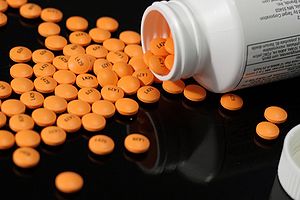
Wouldn’t it be nice if doctors didn’t have to use invasive tests such as heart catheterization to tell if any of your arteries are clogged? Heart caths are not fun – and they carry their own set of risks.
I’m happy to say they’re working on it. Just saw this report on an NIH-funded study using nanoparticles as part of a contrast agent to help doctors visualize the state of your blood vessels much more accurately. A Temple University bioengineer has developed a method for “linking polyphenols, which are very strong antioxidants, to polymers that can self-assemble into nanoparticles.”
The coolest part is that the polymers on the outside get destroyed when they come in contact with arterial plaques (the stuff that can block circulation and cause strokes or heart attacks). Then the contrast agent, including its antioxidants, is released when the polymers dissolve.
The study is two years long. If this works, it could save a lot of people a lot of suffering. Read more here.
P.S. Not biomed but still cool. Engineers have found a way to recycle those ubiquitous plastic grocery bags into practical nanomaterials.


